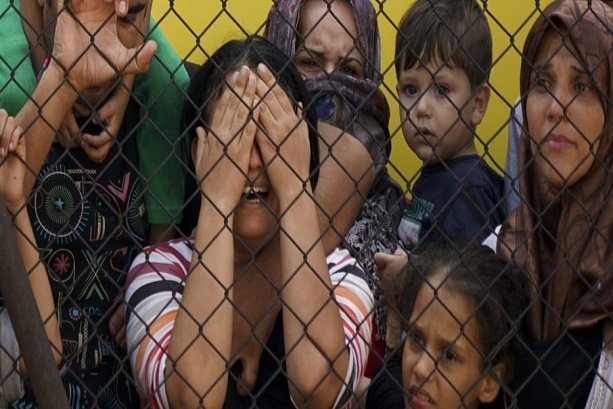“It is outrageous that young and innocent children fleeing war are kept imprisoned behind barbed wire in overcrowded detention facilities on European soil”, said Secretary General of the Norwegian Refugee Council Jan Egeland.
According to NRC, some of the men, women and children on the Greek islands have now been kept in detention for up to two weeks.
“The camps in Greece need to be opened immediately. There are no justifications for keeping asylum seekers in Greece in closed facilities and the situation inside the camps is deteriorating rapidly, putting people in danger”, said Egeland.
“The way the EU-Turkey deal is being implemented at the moment is a disgrace to Europe”, he added. “We would never have accepted this for our own children – and we cannot accept it for others.”
NRC and other humanitarian organizations have suspended some activities at the registration center at Chios after it was turned into a detention facility.
“We cannot support the running of enforced detention facilities, but we are ready to assist if the authorities agree to open the camps”, said Egeland.
According to the plan, Greece may start returning people to Turkey as early as Monday 4 April, despite concerns that many of those arriving have not had their legal rights explained to them, nor had a chance to receive a fair asylum hearing.
“Europe gave birth to the Refugee Convention when our own forefathers were displaced by war. Now Europe risks becoming the same convention’s burial agent. No people should be returned to Turkey before necessary safeguards are in place – and all people who seek asylum in Greece must be secured a fair, individual process," said Egeland.
The agreement with Turkey, aimed at discouraging people from crossing the Mediterranean from Turkey to Greece, may end up putting refugees and migrants at increased risk, argues NRC.
“As long as we are not solving the real problems, the wars in Syria, Iraq and Afghanistan and the desperate situation for refugees in neighbouring countries, people will continue to flee to Europe for protection. We fear people will seek other and more dangerous routes, like going from Libya to Italy or across the Black Sea”, said Egeland.
MS/PR

























Your Comment